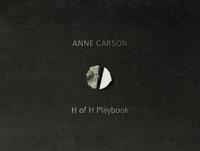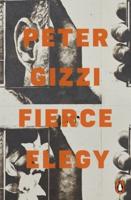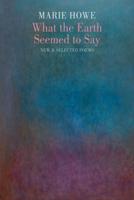Publisher's Synopsis
Who but Robin Chapman would think of Planck's equation, Einstein and quanta while chopping onions, the origins of the universe while pork fat sizzles in the pan? With a scientist's knowledge and a poet's eye for beauty and correspondences, she tracks the stars and considers the fate of the earth; hers is an acute, observant gaze that moves with ease from paleontology to the private lives of rabbits in poems that join the work of intellect and love. -Eleanor Wilner, author of Reversing the Spell and The Girl with Bees in Her Hair. In One Hundred White Pelicans, Robin Chapman continues her compelling poetic exploration of the natural world. As she moves from Wisconsin to France, from broad landscapes to the microscopic, from the news that spills out of our televisions to what biology tell us will be the fate of our troubled world, the scientist in her explains while the poet gives us hope. One Hundred White Pelicans is a wise and wondrous book that will make you worried for our world and long for its redemption. -Jesse Lee Kercheval, author of Cinema Muto, Dog Angel, and World as Dictionary. One of my favorite words is 'redolent, ' and these poems are certainly that: redolent of a damp Adirondack trail, and of an imagined parched future. A future that we can still prevent, but only with great acts of the imagination and the will. -Bill McKibben, author of Eaarth, Deep Economy, and The End of Nature. The poems in Robin Chapman's One Hundred White Pelicans interweave a story of some of nature's most sacred treasures, now threatened by looming environmental crises. Chapman's ideas are so rich, and in ten or so lines she cuts to the essence of scientific concepts and heated debates. From oil disasters and the gulf coast dead zone, to the imminent end of arctic settlements and the pine beetle's path of destruction spurred by global warming, Chapman lays bare today's inconvenient truths. Her poem, "Cassandra on Prozac" makes clear that solutions abound, yet even the simplest elude our grasp in a world divided by competing interests. Yet Chapman delivers some "flashes of hope" that celebrate successful innovations - simple in design yet large in impact that can "seed the future" and provide hope in the face of today's challenges. In short, Chapman's collection of poems represents one of the most concise, yet penetrating, assessments of the state of our world that I have ever read. -Jonathan Patz, Professor and Director, UW-Madison Global Health Institute










